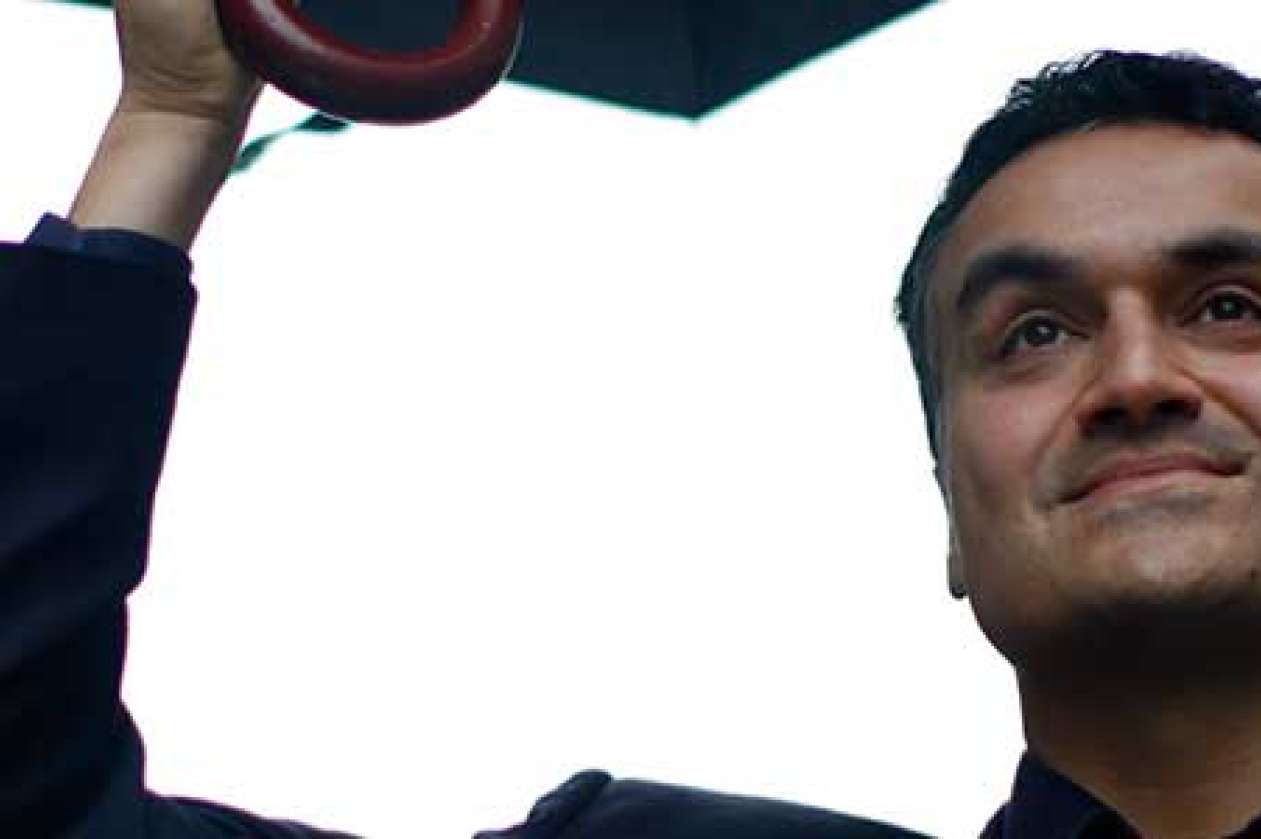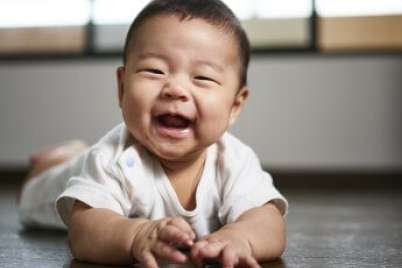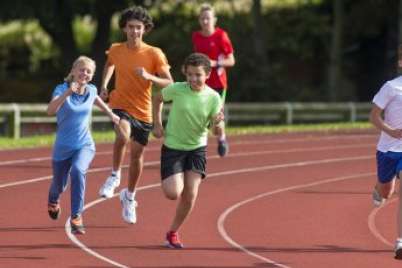
Carl Honoré connects physical literacy and the slow movement
Editor’s note: This feature interview with Carl Honoré originally published on April 3, 2013.
This month Carl Honoré, award-winning journalist, author, globe-trotting speaker, and ambassador for the “slow movement” will be giving the keynote speech at the International Physical Literacy Conference in Banff. (Watch Carl’s TED Talk.)
That audience is in for a treat because talking with Carl is at once thought-provoking, illuminating, and reassuring. I spoke with him on the phone and, as you might expect, our conversation was distinctly unrushed.
Carl believes that we can fix almost any societal problem by slowing down, and that many of our issues, ranging from health to business to parenting, stem from our addiction to speed and the desire for quick results. He writes about this, and more, in his book, The Slow Fix.
During our chat I asked him about how he thinks the slow movement can improve our children’s experiences with sports and physical literacy.
You have said in the past that you feel the slow movement is universal and can be applied to anything. Can you explain the connection between physical literacy and the slow movement?
Part of what is going wrong around the world is that we’ve kind of professionalized youth sports, trying to create sports stars before creating athletes. We need to slow down in the sense of taking the time to play and to learn those basic skills like running, jumping, throwing, climbing, skipping, hopping―all those things that will become the cornerstone of physical activity later on.
We’re unhelpfully inverting the equation, trying to get kids to do things much more quickly, much earlier. We think that faster is better and earlier is superior but ultimately that just backfires. You see this right across the experience of childhood whether it’s the intellectual, academic cramming that goes on, trying to get kids to learn their timetables, basic literacy, and grammar, or getting them to write earlier. But actually, not only will other kids catch up but often they will overtake them if they’ve had the slower experience of building up those building blocks in the early years. So I guess I see it through that prism.
Are you saying that by nature, developing physical literacy is a slow process?
I think that’s how I feel. In a lot of youth sports we are putting the cart before the horse in a way, in our impatience to build the perfect resume and create the next Sidney Crosby.
Last night I was watching the news and there was a report about a massive brawl at a youth hockey game but it wasn’t the kids fighting it was the parents in the stands. It made me think of what you’ve written about the professionalization of parenthood and the notion that parents treat their children as projects. Do you think there is a connection between these two things?
I think parents, we’re kind of paranoid that our children are falling behind and that produces great anxiety that translates into aggression and spills over in the stands in the peewee hockey game, and that’s happening around the world. There was a similar brawl at a rugby match for 8 year olds in England recently; well-bred, middle-class parents, who drive Range Rovers throwing punches on the sidelines. But I think the flip side of that is also that we have become over-invested in our children.
Obviously parents throughout history have wanted their children to thrive but somehow with this generation it’s almost like our kids are a mini-me. And we even talk about our children in a third person plural, you hear parents saying “we’re doing hockey this summer” or “we’re going to university this September”. It’s kind of like the line has been blurred and you end up with these absurd situations where parents just lose their rag at children’s sports events because they are feeling it so intensely, almost vicariously living through their children on a soccer pitch or field in a way that I don’t think any parents from any generation before have ever done.
I mean, I remember growing up in Alberta, Canada and you know I played sports and my parents did not watch every single game and every single practice. They came sometimes and that was good but I didn’t really want them there all the time. It is almost a claustrophobic obligation on parents to have to be there on the sidelines, be there in the stands and it is all part of where we are historically with childhood and parenting. So I’m not surprised to hear that there was a brawl at a hockey game, I think that they are happening all of the time.
How do we regain our perspective?
Part of it comes through slowing down, actually. That might sound a bit glib but when you start to go quickly you lose sight of who you are and who your children are and how your family is unique. You are not like anyone else and again when you start going fast you stop responding to differences and you just do what everyone else does. You get wound up into this hysterical state where you think there’s only one way to move forward and that’s by following the same path that everybody else is on. And I think that getting off that carousel of speed for a while and just taking time to be alone with your children away from the SUV, away from the organized events, you can kind of regain some of that confidence in yourself and also knowledge of yourself and your children.
I think when we don’t ever stop to reflect, and we just “do”, it’s so easy to get stuck in that mode and you wake up five years later and think, oh my god, how did we get here? And I think the answer to that question is we got here by not slowing down. (laughs)
So how do we slow down and still make sure our kids are active and learning skills?
I think part of it is discipline to say, okay this isn’t working for us. It’s not working for most people, so we need to stop and think about what would work for our particular family. But I also think that as a kind of part B what people need to do these days, and it sounds a bit paradoxical, is to schedule unscheduled time or some scheduled slow time. So you set aside time on the weekend or during the day when you do things that involve physical literacy and you also have to fold it into the family events so the children get that physical literacy without it becoming another exercise where you have to check a box off, another thing on a resume.
So go for a bike ride in the park, or go look for interesting stones at the beach, or build a fort. You can couch it in a way that doesn’t sound like it’s another task. Because a lot of children now feel like their lives are an endless merry-go-round of hoops to jump through and if you can kind of back away from that and take away the heat and the hysteria out of the equation, I think it becomes something that children then without even thinking about it start developing skills.
In some ways I think that is the key thing, inventing your own formula because so much of what we get nowadays is the same. Hockey is the same, there’s one track, you’re either in 4 nights a week or you are out and I think a big part of reclaiming those basic skills, that physical literacy, is to say, okay I live in a society where much of the time I’m going to have to play by the rules or follow whatever track, but I’m also going to try to carve out moments that will help us forge our own path.
So if you’ve got a kid that loves to play hockey, every neighbourhood in Alberta has two outdoor rinks at the end of the road and when I grew up we were out there every single day just hacking around playing and now I go back to my same neighbourhood and all those rinks are empty because the kids don’t have time or they are inside playing x-box or they’re off at some kind of structured event. So again, it’s about reclaiming that space to do your own thing and setting aside time to do these things that doesn’t necessarily involve a lot of structure, or certainly doesn’t involve following somebody else’s recipe plan.
You spoke earlier about the professionalization of youth sports and that’s one end of the spectrum with kids being over-trained to the point of burnout and injury. Then you talked about kids sitting home playing video games, and that’s the other side of it. Do you think as a society our children fall into those two extremes?
I think that is where we are. In some ways there’s a weird apartheid that half the population’s children are being over-parented, over polished, over pushed, over protected, and then you could argue that the other half, and this would probably be the other end of the socioeconomic scale, are not getting enough parenting, not getting enough pushing, not getting enough structure and are left to their own devices and increasingly in this society being left to your own devices means sitting in front of a screen, so there’s definitely a socioeconomic factor there. Those who have less money, less wherewithal, you could even say less education, tend to under-parent.
This is something you see everywhere. I travel around the world ― it’s not just in Canada, that gap that opens up. But it’s not that simple, on the over-parenting side of the equation you get a weird mixture where on one hand we’re piling tons of energy into our children, resume building, polishing them, getting their marks up to top of the class, getting them into double hockey. All that sort of improvement stuff, that’s where a lot of energy goes. But we don’t put the energy into the simple things, just having a meal with them at the end of the day or reading a story. The very simple kind of things that are free, actually, and that are hugely important for children’s development and forging strong bonds and that makes up this weird paradox that occurs in these highly competitive families where all the energy, money and time goes into building the perfect resume, and the perfect child to go along with it. But a lot of the stuff that actually will build a good child, a lot of the basic stuff gets squeezed out and about the only time you have to talk to your child is when they are strapped into the back of the SUV on the way to basketball practice.
It’s so interesting that we’ve landed in these two extremely different scenarios and yet, as you’ve written about, they both lead to the same problems for these children: depression and self-harm, eating disorders, psychological disorders. How we can find the middle ground between the two extremes?
It’s about finding the right balance between knowing that children need structure, and they need to be pushed, and they need to be trained, and a bit of competition and pressure isn’t a bad thing… but they don’t need those kind of things obsessively and you need to make absolutely sure to ― and this is a hard thing to arrange in our control freak society ― give them that space; give the family that space. Because children learn best when they take the reins of their own learning rather than just sitting there doing exactly as they’ve been told to do and that’s the same with academic and the same in learning the basics of sports.
And this is what kills so much of children’s interest in sports; the bulk of kids get turned off sports in droves. Why? Because we’ve turned it into this hothouse pressure scenario, it’s not about learning to love the game and to learn skills like physical literacy skills, that go beyond the game, that make you a happier, healthier person. Everything is so compartmentalized now and specialized. A child who comes to hockey or soccer or gymnastics and isn’t going to be amazing at it, that child can learn so much not only about that sport but about how to be a healthy citizen. It seems to me that we kind of killed that thing we love, piling on so much pressure and so much organization so early that we squeeze out that space where the child can learn and get confident in herself.
At Active for Life we focus a lot on physical literacy as a practical thing that parents can do with their kids to help them to be active.
Children at that age [prior to 8] are hardwired to learn physical literacy, that’s what the human brain that we inherited hundreds of thousands of years ago is designed for. Kids seek out not only the intellectual stimulation they need to build their brains but also the physical. That’s why they play, that’s why kids play and we get in the way of play ― often with the best of intentions ― but we get in the way and that’s the trouble, and I think in a sense that’s what the slow culture is all about, “well let’s get out of the way and let’s help them but let’s help them at the right rhythm, the right pace so we’re not rushing when we shouldn’t be rushing and messing up the thing that we really want to nurture”.
Is it possible to reconcile respecting the internal rhythms of the family and the internal rhythms of the individuals in the family and still follow external schedules like those prescribed by the schools for example?
When you say “to hell with it we’re going to do this on our terms”, you will have friction points when you rub up against the school timetable or the team timetable and I guess you‘ve just got to gently and gradually work out ways to reconcile those differences. You can’t snap your fingers and suddenly expect everyone to accept that you are going to go slow. That won’t happen.
But, I do think that although it might seem that the outside world is implacable and unchangeable, it’s not, it’s made up of people like you and me, other parents who are often thinking exactly the same thing, which is, “is this what we really wanted for our kids? Is it want we wanted for ourselves? You hear these conversations going on in playgrounds, hockey training camps on the sidelines, you know it’s everywhere, and sometimes it’s to say, well instead of moaning about it why don’t we try to think about what we can do?
I can see lots of little changes happening and some big ones too. So don’t give up hope.






Excellent interview. I’ve felt for a long time that there is too much pressure on children these days. They should be “kids” and not have to perform. As for the parent’s rivalry within organized sports – it appalls me.
Mr. Honore’s comments, in my opinion are bang on.
Great article. I really appreciated that perspective, and think parents could learn a lot from Honore’s approach.
Awesome perspective. Must needed. Thank you Mr. Honoré .